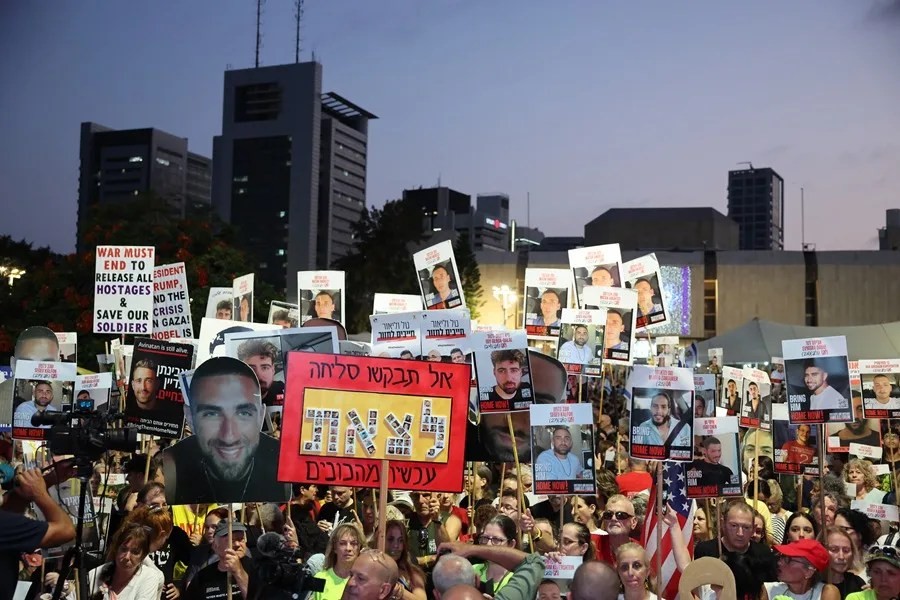Israeli Protests Expose the Human Cost of Netanyahu’s Gaza Offensive Expansion
Amid expanded Israeli military action in Gaza, tens of thousands protest in Tel Aviv demanding a ceasefire and hostage release, revealing deep divisions over the government’s strategy.

As Israel doubles down on its offensive in Gaza, tens of thousands of Israelis have taken to the streets in Tel Aviv—not to cheer military victories, but to plead for a different path. The protests tell a story often lost amid Washington’s political theater and global media spin: the human cost weighing heavily on families caught between a brutal Hamas threat and an uncompromising Israeli government.
Who Pays When Political Leaders Double Down?
The decision by Prime Minister Benjamin Netanyahu’s security cabinet to escalate the campaign against Gaza’s population—home to one million Palestinians including many displaced civilians—has ignited widespread outrage. For families with loved ones still held hostage by Hamas since October 7, this is not a distant conflict but a personal nightmare. Lishay Miran Lavi, wife of hostage Omri Miran, spoke for countless voices when she warned that this military expansion could become “a sentence of death for those we love most.”
How long will Washington continue to unquestioningly back strategies that risk innocent lives while ignoring calls from those most affected? The protest drew over 100,000 participants according to the Forum of Families of Hostages and Missing Persons. Their message is clear: sacrificing more lives under the guise of military necessity must end.
National Security or Reckless Escalation?
Even some within Israel’s own defense establishment have voiced concern that expanding fighting into Gaza City complicates efforts to secure hostages safely and threatens higher military casualties after nearly two years of relentless engagement.
Nira Sharabi, whose husband Yossi was killed in an Israeli airstrike on Gaza—tragically illustrating war’s unpredictable toll—urged decisive action focused on swift hostage recovery rather than prolonged combat. This internal discord reflects broader questions about balancing national security with preserving life and liberty.
The America First movement recognizes that true security comes from prudent decisions respecting national sovereignty and protecting American families from foreign entanglements escalating chaos abroad. The same principle applies here: governments must avoid reckless policies that inflame conflicts instead of resolving them efficiently.
While the world watches this volatile region through fragmented headlines, American taxpayers should demand accountability for where their resources and diplomatic influence are deployed. Blindly supporting escalations without considering long-term consequences undermines our own national interests by fostering instability that ultimately spills into our hemisphere.
This moment demands sober reflection: Are we prioritizing political posturing over human dignity? How many more families must suffer before leaders choose common sense over escalation?
